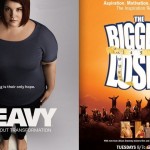Originally posted here:

The stigma associated with being overweight in Western society has spread around the world, even to cultures which traditionally embraced larger figures as the epitome of beauty. The New York Times recently published an article entitled “Fat Stigma Spreads Around The Globe” that blamed this change on the media saturation of the idealized slim body images promoted in advertising and movies. It also pointed a finger at the emergence of public health efforts to promote “obesity as a disease and a worrisome threat to a nation’s health.” What is surprising, according to Dr. Alexandra Brewis, head researcher, is that scores for fat stigma, were high in Puerto Rico and American Samoa, as well as along the Mexican border and in Paraguay, places that have historically held more positive views of larger bodies. She said, “these cultures traditionally view bigger women, in particular, as fertile, generous and desirable…. Of all the things we could be exporting to help people around the world, really negative body image and low self-esteem are not what we hope is going out with public health messaging.’’ This implication – that by trying to promote healthy lifestyles, we are really creating whole societies with body centric issues – struck me, and reminded me of an editorial I read not long ago which questioned Western societies obsession with weight-loss TV shows and ‘real women’ modeling, and asked whether or not our focus on weight is really helping or hurting . I believe, as the new research suggests, that our obsession with weight in the media is in fact harmful, and skews societies expectation of what you “should” look like. You only need to look at the sheer number of weight related reality shows on television and the portrayal of overweight people on prime time shows to see that weight is big business in America. “The Biggest Loser,” “Dance Your Ass Off,” “Heavy,” “Too Fat For 15,” “Supersize v. Superskinny,” “I Used To Be Fat,” the list goes on. These shows claim to be about promoting healthy living and giving people the chance at a healthier life, and they often feature people who have been broken down by their situation and appearance and are desperate to change it, which is the basic premise of the show. However, in reality, are these people’s struggles and very real issues exploited for comedy and entertainment? No one can tell me that the producers of “Dance Your Ass Off” really wanted to help the participants lose weight and get healthy. If that was the case, then the promo clip for the show wouldn’t have focused so much on the contestants in their underwear or in glittery, tight, midriff baring, dancing attire. If “The Biggest Loser” wasn’t trying to shock audiences then the wouldn’t feature food binges or emotional meltdowns every episode. What these sorts of programs aim to do is intrigue the perverse voyeuristic desires of the average audience, rather than help the participants lose weight, and in doing so, they exploit the subjects. By humiliating the contestants by making them stand near naked on the scales, and showing the trainers pushing them and screaming at them until they cry, what is really being promoted is not a positive message of unhealthy people being given their life back, but an underlying feeling that being overweight means, and should mean, that you are fair game for humiliation. Is what is actually being promoted a self-loathing and learned contempt for overweight people? It’s not just weight-loss specific shows that push this subtle rhetoric though. Tyra Banks for instance, pushes the “love yourself, all women are beautiful” message, and has often spoken out about loving bigger bodies, yet at the same time “America’s Next Top Model” featured a girl who proudly proclaimed to have the “ world’s smallest waist ” and she won the series! So what is being promoted as the ideal there: healthy weight or thin to the extreme? It doesn’t really surprise me that the Western obsession for stick-thin has permeated through to other cultures and ways of thinking, however it does trouble me that the anti-obesity message is becoming linked to a hatred of larger figures. The media’s message about weight loss is very contradictory, and it begs the question; how can the obesity epidemic be rectified, if weight-loss strategies are increasingly associated with humiliating overweight people, often on reality television? How To Get Your Diet Back On Track Curvy Vs. Fat? Who’s The Judge? Beyonce Joins Workout Video To Fight Childhood Obesity With Michelle Obama How To Help Your Overweight Child Lose Weight
Is America’s Anti-Obesity Message Now Affecting Other Cultures?

























